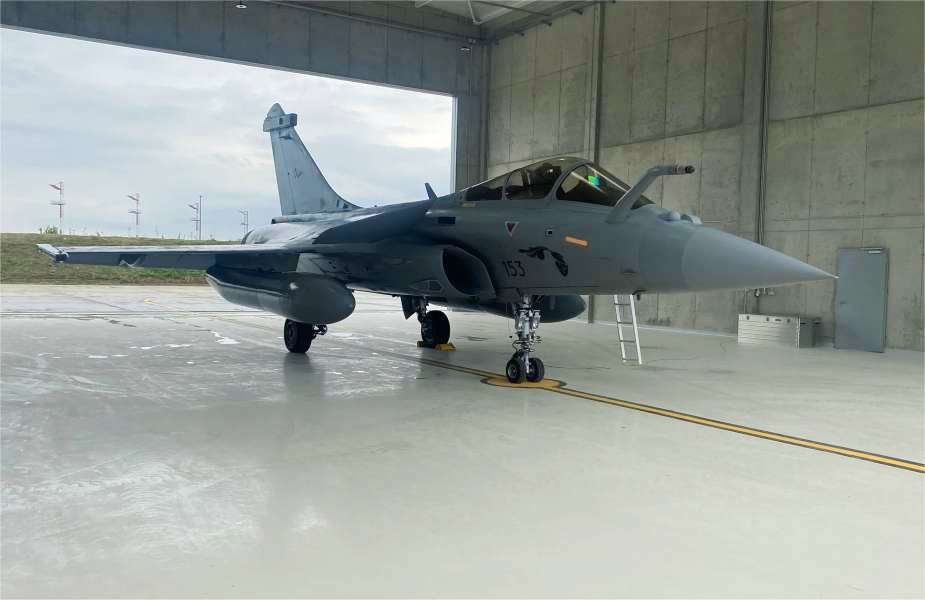
Key Points:
- Croatia received the first six of twelve Dassault Rafale F3R fighter jets, which significantly upgraded its air force capabilities.
- The acquisition of the Rafales signifies Croatia’s commitment to modernizing its defense and enhancing its role within NATO.
- The arrival of advanced fighter jets in the Balkan region may spark further military developments and potential arms competition among neighboring countries.
Croatia Welcomes First Batch of Rafale Fighter Jets
The Croatian Air Force entered a new chapter in its history on Thursday as the first six Dassault Rafale F3R fighter jets touched down at an airbase near Zagreb. This delivery marks a significant step in modernizing Croatia’s defense capabilities and integrating it within NATO.
Historic Acquisition Strengthens Croatian Air Power
The arrival of the Rafales, part of a 12-unit deal signed in 2021 with Dassault Aviation, signifies a substantial leap forward for the Croatian Air Force. The agreement, valued at over one billion euros, includes the aircraft and comprehensive armament systems, spare parts, logistical support, and training services.
These advanced fighter jets will replace the aging Soviet-era MiG-21s that have been the backbone of Croatia’s air defense for decades. The transition to the Rafale F3R represents a significant upgrade in technology, performance, and operational capabilities.
Ceremony Marks Milestone in Croatian Defense
Croatian pilots, who have undergone rigorous training in France, will operate the Rafales within the 191st squadron at the 91 operational base. The remaining six aircraft are scheduled for delivery in 2025, completing the squadron and solidifying Croatia’s air defense capabilities.
Rafale: A Versatile and Advanced Fighter Jet
The Dassault Rafale, manufactured by the French aerospace company Dassault Aviation, is a twin-engine fighter jet renowned for its multirole capabilities and advanced technological features. The aircraft’s design allows it to perform effectively in a wide range of mission profiles, including air supremacy, interdiction, reconnaissance, ground support, and anti-ship operations.
The F3R variant, acquired by the Croatian Air Force, is equipped with state-of-the-art systems that enhance its operational effectiveness. The Thales TALIOS laser designation pod enables precise targeting for air-to-air and air-to-ground engagements, ensuring accuracy and minimizing collateral damage. Furthermore, integrating Meteor air-to-air missiles provides the Rafale with extended range capabilities, allowing it to engage aerial threats at greater distances.
Pilot safety is paramount in the Rafale’s design, as evidenced by its inclusion of the Automatic Ground Collision Avoidance System (AGCAS). This system utilizes advanced terrain awareness and automated flight control adjustments to prevent ground collisions, particularly during low-altitude operations or when the pilot may experience spatial disorientation.
The Rafale’s versatility is further enhanced by its ability to operate effectively across a broad spectrum of speeds and altitudes. Its aerodynamic design and powerful engines allow for high-speed supersonic flight while enabling the aircraft to maintain stable flight at low speeds. This is crucial for tasks such as aerial refueling and carrier operations.
Regional Implications and Future Outlook
Croatia’s acquisition of Rafale fighter jets has potential implications for the wider Balkan region. Neighboring Serbia recently announced plans to purchase 12 Rafale jets, suggesting a potential arms race dynamic. Serbia’s historical reliance on Russian military equipment and its reluctance to join sanctions against Russia for its invasion of Ukraine add another layer of complexity to the regional security landscape.
Croatia’s commitment to modernizing its air force with the Rafale demonstrates its dedication to NATO and collective security efforts. The Rafale’s advanced capabilities and long-term upgrade potential ensure that Croatia will remain at the forefront of airpower technology for decades.
